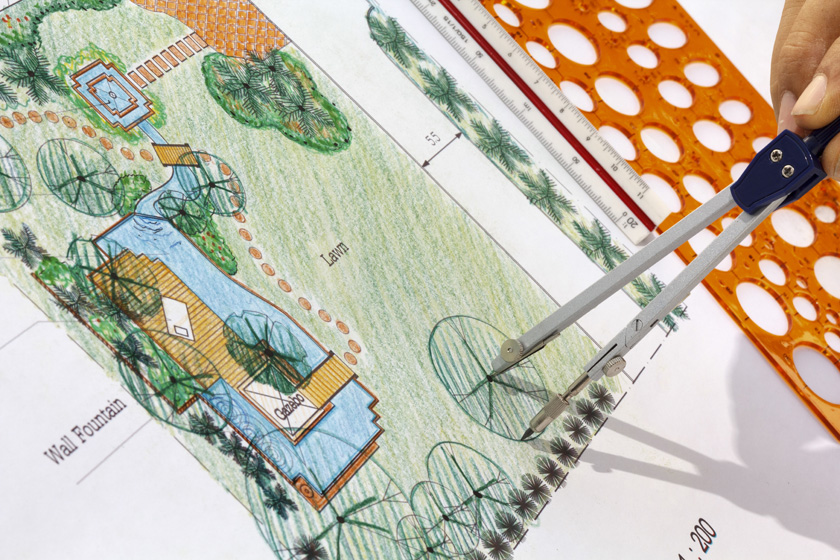Landscape Design

Landscape designers don’t consider nature in terms of what it is, and they consider nature in terms of what it can be. Even the name itself – “landscape designer” – seems like more of a career title for God than for mere mortals, but thanks to abundant technology, an eye for aesthetics, access to materials, and amazing training opportunities, we too can take on the career title of landscape designer and transform the natural land into a magnificent vista. Some schools will offer landscape design degree programs, but usually, you’ll find certificate-based programs which will allow you to finish quicker.
Why Choose Landscape Design?
Landscape design requires more training and knowledge than many people give it credit for. Instead merely knowing how to move dirt and plant bushes, landscape designers obtain intimate knowledge of types of grasses, roots, trees, dirt, minerals, sediments, and human-made components of landscaping. They also earn proficiency in many engineering and architectural components so that they can properly design and implement their landscape features.
Many landscape designers are self-employed, serving as consultants, designers, and contractors for a variety of contract-based jobs with clients. Clients are comprised of a wide range of individuals, including homeowners, businesses, contractors, and local or federal government agencies. Jobs would require either looking at a new piece of construction and designer the exterior landscape surrounding the edifice, remodeling a currently existing set of a landscape, or designing other features for public or private use, such as a local park or pond.
Besides working for themselves, many other landscape designers work within larger architectural or engineering firms. Large firms hold a lot of responsibilities for producing functional and appealing structures for all sorts of purposes. A landscape designer will help to envision what certain land could look like to achieve this functional and visually appealing features, including working alongside engineers and architects to coordinate a particular style or design. If not working for oneself or a firm, local, state or federal government departments will occasionally employ landscape designers for public projects, such as designing a park, recreational area, garden, or river walk. Although fewer landscape designers are employed full time within government roles, the opportunity to serve the public is available through these roles or on-time contracts with the government.
The importance of having a qualified and talented landscape designer is increasing as the demand for new construction and the redevelopment of existing properties increases. Although competition for top spots at large firms will be tight, the overall demand for landscape designers – whether self-employed or at a firm – is expected to continue to increase. With your skills, qualifications, and experience, you will be able to make yourself more competitive as a candidate for business contracts and positions at ideal firms across the country. You’ll be able to ask and answer questions that many others cannot, and you’ll be able to lend your expert eye to look at a plain piece of land and determine what exactly it needs to look beautiful and be functional. Don’t hesitate to take the courses that will help provide you with the mastery necessary to get into this growing and exciting field.
